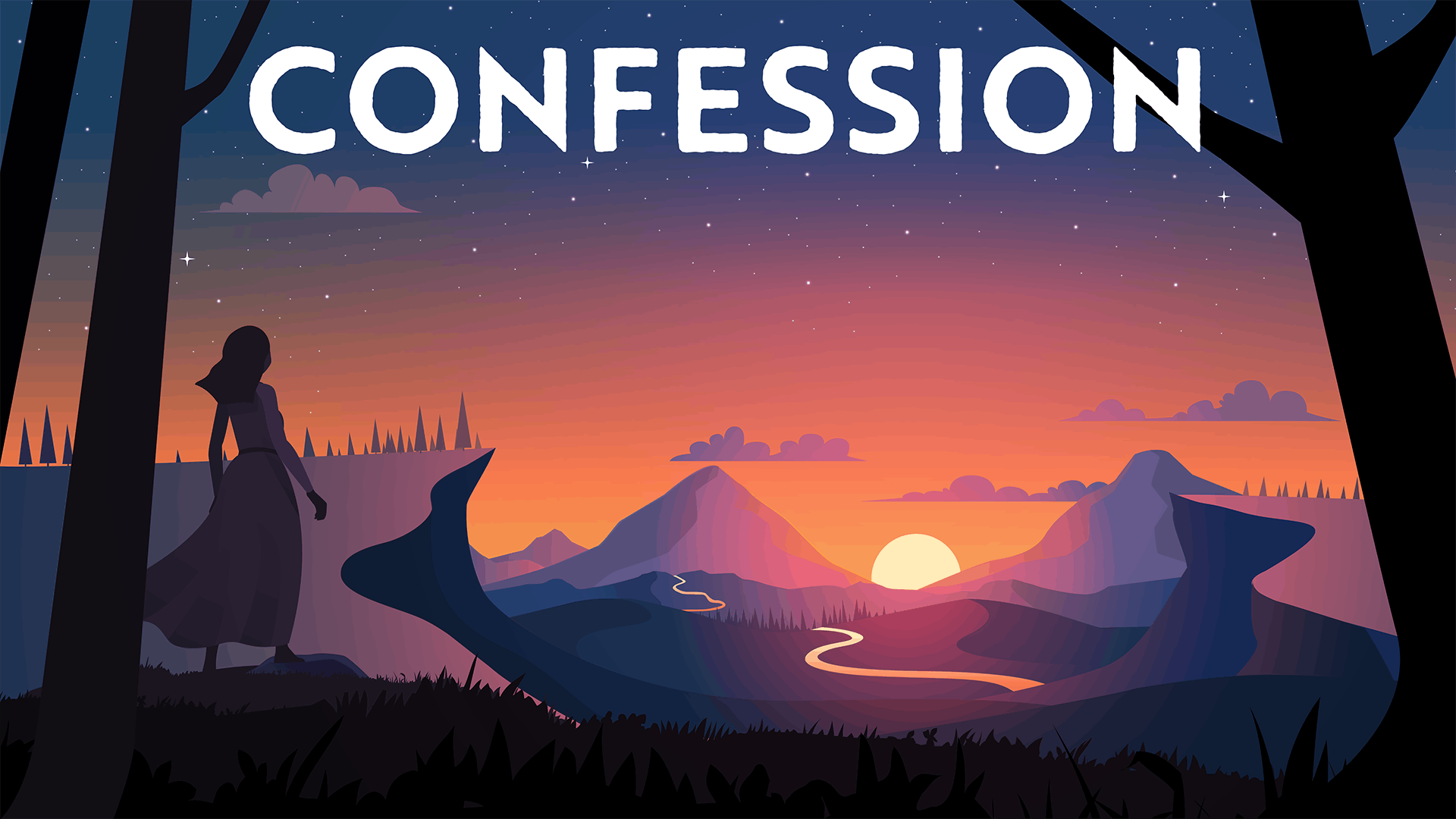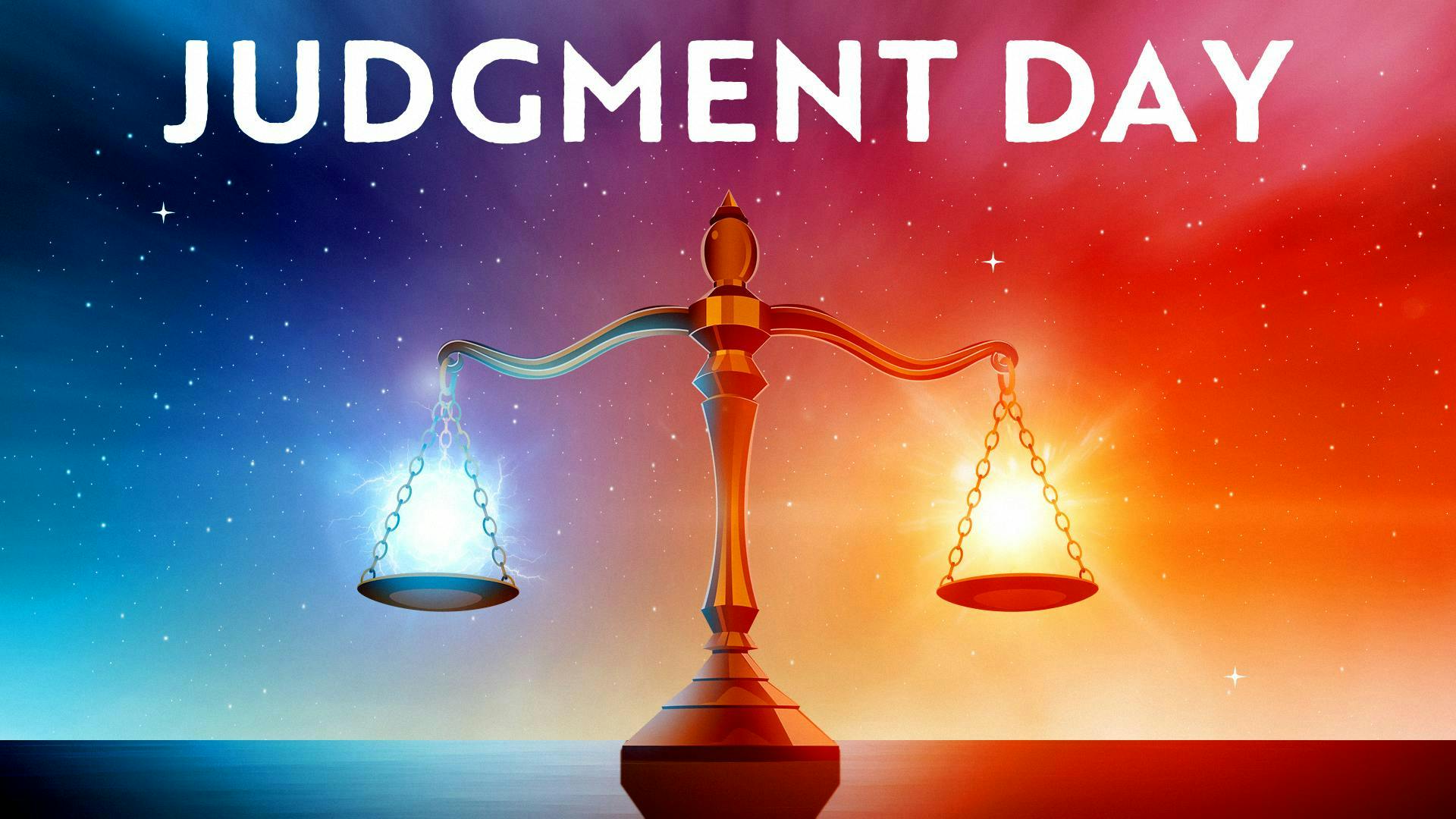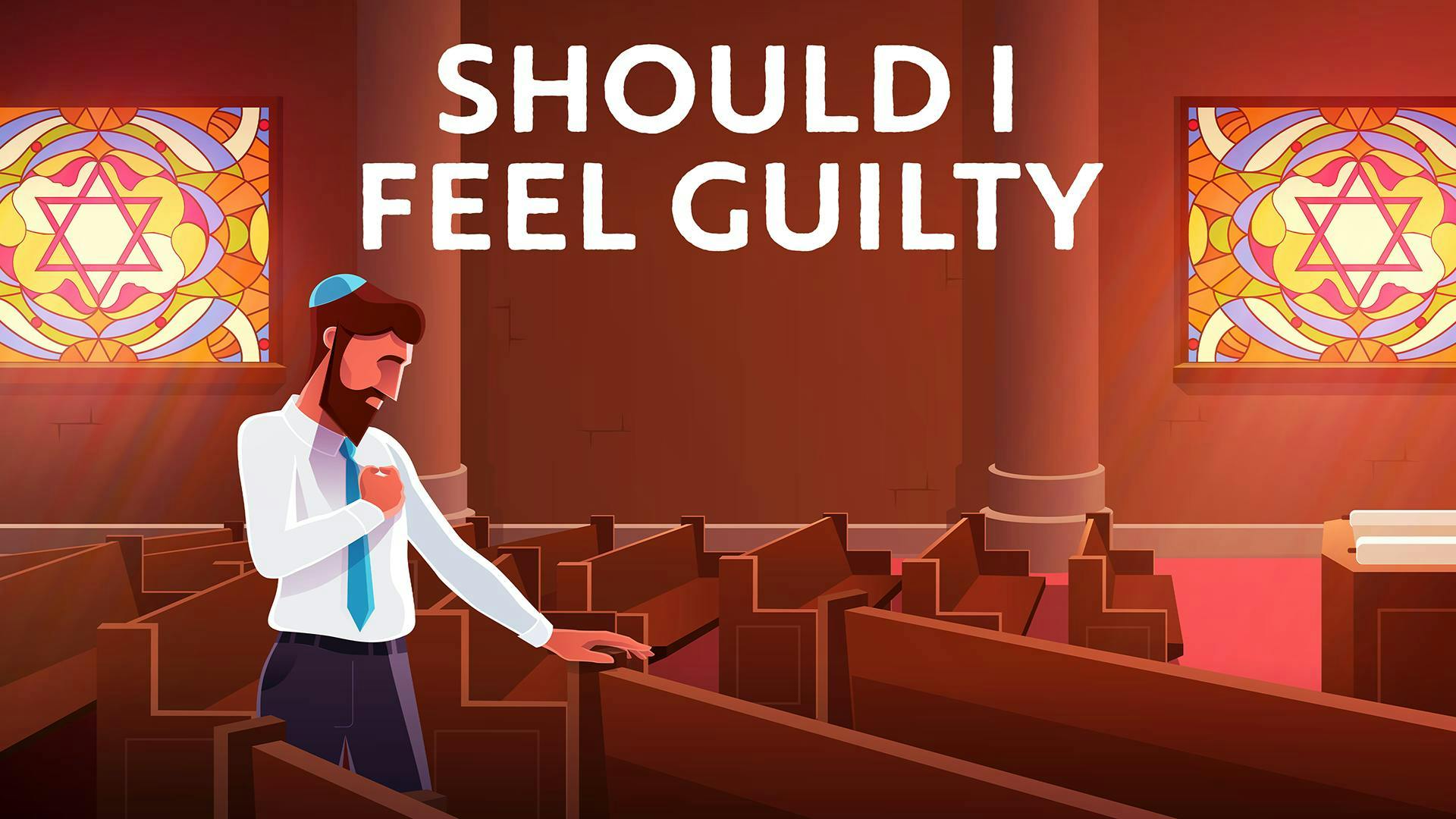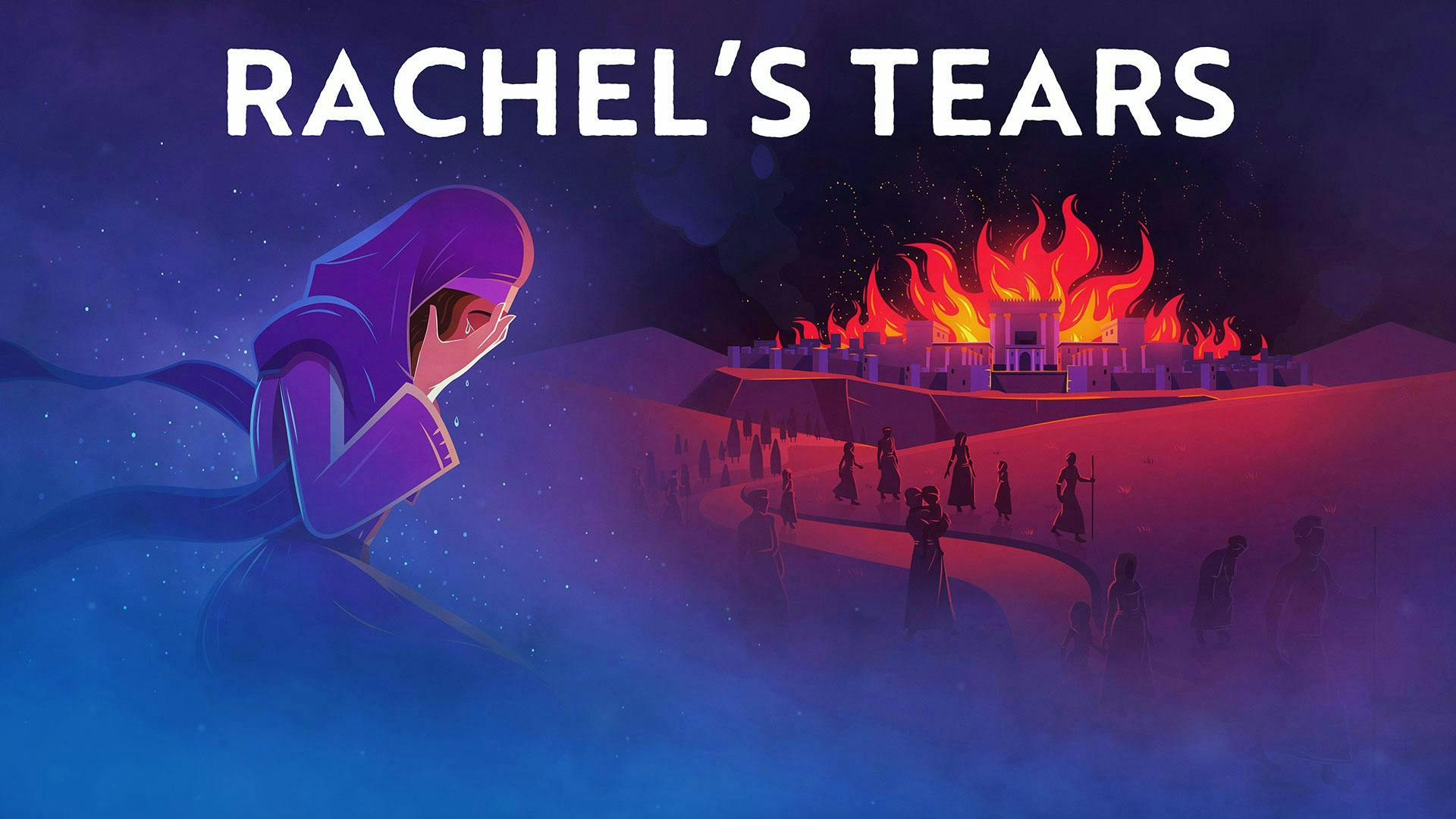Why Do We Mourn On Tisha B'Av?
What does it mean to grieve for a 2,000 year old tragedy?
By Sarah Rashba | 5 August 2024 | 10 Minute Read
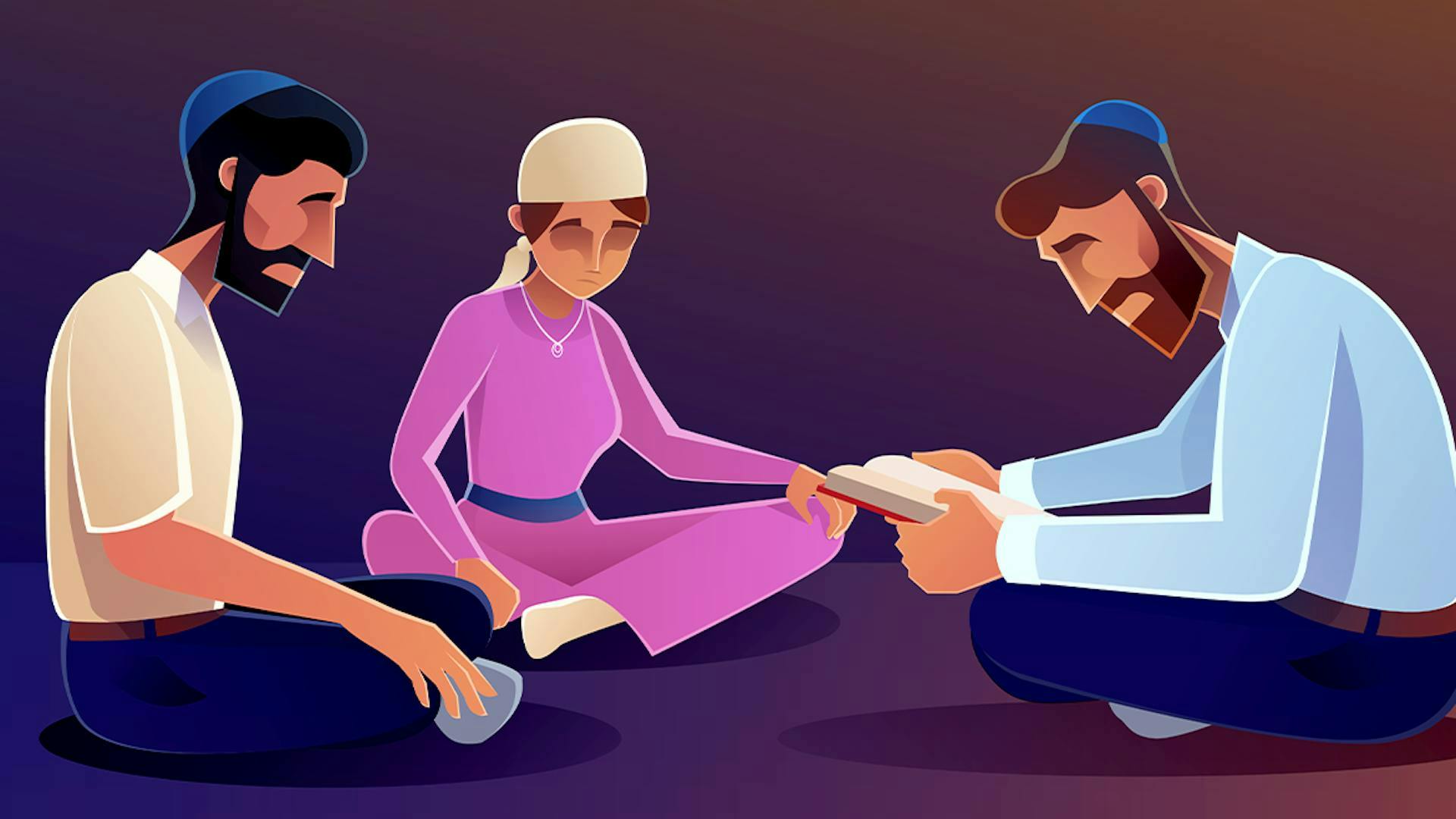
Looking for more?
We have hours of delightful videos and podcasts to enhance your Yamim Noraim experience.
What is Tisha B'Av?
Tisha B'Av in Hebrew means the 9th day of the month of Av, and it is a date that commemorates the destruction of both the first and second Temples in Jerusalem (586 BCE and 70 CE).
On Tisha B'Av, we remember these tragedies by reading the graphic and tragic Book of Lamentations, which bemoans the ravaging of Jerusalem at the start of the Babylonian exile. But we do more than just read and remember. The whole community adopts mourning practices, as if each one of us had lost a close family member: we sit on the floor, we eschew comfortable shoes and bathing and sexual relations. We don’t even greet each other.
On top of the mourning practices, we also fast. Fasting is not a mourning practice in Judaism—perhaps in this case it is a way to put ourselves into that suffering mood, when we haven’t actually experienced an immediate loss.
Which brings us to a big question we can ask about mourning on Tisha B’Av in general…
Why Are We Mourning on Tisha B'Av?
Mourning practices are usually employed to help you handle grief you already have. But on Tisha B’Av we’re told to grieve, and then given a way to handle that grief. To take this one step further, it’s almost as if the mourning practices aren’t there to comfort us – but to evoke these strong emotions in the first place.
I just pointed out above that we aren’t actually experiencing an immediate loss…. That’s an understatement! The losses we are mourning aren’t just not immediate—they aren’t in our living memories! And when it comes to the Temples specifically, these losses aren’t in the living memories of anyone we’ve ever met, or anyone our great grandparents have ever met, or anyone their great grandparents ever met. We are supposed to be mourning something that happened two thousand years ago!
So when we ask: "Why do we mourn on Tisha B'Av?" we are really asking two questions:
- How is it possible to command someone to mourn? Mourning feels like an emotional reaction to a sad event. Not a feeling that you can switch on or off!
- Why are we mourning an event that never happened to us, and did not happen to our parents or grandparents? How can you authentically mourn for something 2000 years in the past?
(As an aside, I know this isn’t the only holiday where we are commanded to feel something. But somehow I don’t mind as much, for example, being told I should be happy on Purim. Maybe it’s just me, but I would rather be told to be happy than to be sad...)
All right, those are the two big questions that are bothering me about this holiday. To put them together again in other words: What does God want from us on Tisha B'Av?
Short of asking God, I think looking for answers in Tanach is the next best fist step….
Tisha B'Av in the Tanach
We first hear about the observance of Tisha B'Av in the Book of Zecharia, when certain people ask Zecharia (and then Zecharia asks God on their behalf) a very similar question to our question. If anything, it’s a little bolder.
A little context: Zechariah was one of the very last prophets, along with Malakhi and Haggai. They prophesied during the return of some of the Jews from the Babylonian exile, and the beginning of the construction of the second Temple, about seventy years after the destruction of the first. It’s an exciting time. There is a touching description in Ezra 3:12 of the beginning of the service at a newly erected altar in Jerusalem—the oldest people gathered there are in tears, remembering from their youth the first Temple that had been destroyed, as they see before them the beginning of the new, rebuilt Temple.
It is in this general context of return and rebuilding that certain Jews still in Babylon send to Zecharia, and ask him:
… הַֽאֶבְכֶּה֙ בַּחֹ֣דֶשׁ הַחֲמִשִׁ֔י הִנָּזֵ֕ר כַּאֲשֶׁ֣ר עָשִׂ֔יתִי זֶ֖ה כַּמֶּ֥ה שָׁנִֽים
Should I cry on the fifth month, and abstain [from joy], as I have, these past years? (Zecharia 7:3)
The fifth month (counting from Nisan), is Av, and they are referring to the fast of Tisha B'Av, and asking: Should we still be observing it as a mourning day? In other words, they are asking the prophet: What does God want from us on this day?
God’s Response
Perfect—we wanted to know what does God want from us and our mourning on Tisha B'Av, and it seems like we are about to get a direct answer, through the pen of a prophet, from God, thanks to Sar-Etzer and Regem-Melekh. (Those are the names of the people who asked Zecharia the question.)
Are you ready for a surprise?
Here is Zecharia’s answer from God:
וַיְהִי דְּבַר-יְהוָה צְבָאוֹת, אֵלַי לֵאמֹר: אֱמֹר אֶל-כָּל-עַם הָאָרֶץ, וְאֶל-הַכֹּהֲנִים לֵאמֹר: כִּי-צַמְתֶּם וְסָפוֹד בַּחֲמִישִׁי וּבַשְּׁבִיעִי, וְזֶה שִׁבְעִים שָׁנָה--הֲצוֹם צַמְתֻּנִי, אָנִי
God says: When you were fasting and mourning in the 5th and 7th months (Tisha B'Av and Tzom Gedalia) for these past 70 years, Was I fasting?
וְכִי תֹאכְלוּ, וְכִי תִשְׁתּוּ--הֲלוֹא אַתֶּם הָאֹכְלִים, וְאַתֶּם הַשֹּׁתִים
And when you eat and drink - isn’t it you who decide when you eat and drink? (Zechariah 7:4-6)
What God is saying in response to the people is: “I never commanded you to make a fast day. You were the ones who chose to fast and mourn, not me!”
So, what does God want from us? The answer seems to be: God doesn’t want any of this; God doesn’t care!
Actually, Zecharia takes the opportunity to emphasize what God really does care about: righteous judgment, and kindness and compassion to their brethren.
… מִשְׁפַּ֤ט אֱמֶת֙ שְׁפֹ֔טוּ וְחֶ֣סֶד וְרַֽחֲמִ֔ים עֲשׂ֖וּ אִ֥ישׁ אֶת־אָחִֽיו׃ וְאַלְמָנָ֧ה וְיָת֛וֹם גֵּ֥ר וְעָנִ֖י אַֽל־תַּעֲשֹׁ֑קוּ וְרָעַת֙ אִ֣ישׁ אָחִ֔יו אַֽל־תַּחְשְׁב֖וּ בִּלְבַבְכֶֽם׃
… Execute true justice; deal loyally and compassionately with one another. Do not defraud the widow, the orphan, the stranger, and the poor; and do not plot evil against one another. (Zechariah 7:9-10)
Right here in Tanach, we learn that the holiday Tisha B'Av evolved as the people’s response to great tragedy. God is not commanding any sort of forced suffering or contrived mourning. And if it were up to God? God is far more interested in how we treat one another than whether and how people adhere to the various customs of Tisha B'Av.
…Then Why Do We Still Fast and Mourn on Tisha B’Av?
So where does that leave us? Should we stop mourning on Tisha B’Av? Or maybe just take on whatever mourning practices we are moved to do based on our internal feelings about the Temple on any given year?
I don’t think that’s the answer.
Because we still have two thousand years of rabbis legislating mourning practices, and communities practicing them, leading up to us, today.
I didn’t just discover those prophecies of Zecharia in an archaeological dig, either—all the sages who kept Tisha B’Av alive as a practice for all those centuries knew those verses, too. Those verses about God effectively shrugging at the fast day.
But maybe it means we have to look for human reasons, rather than divine reasons, for observing this holiday. Unlike Yom Kippur or Passover or Sukkot, which have clear devine mandates—this one is on us.
The question, then, isn’t what does God want from Tisha B'Av; it’s what do we want from Tisha B'Av?
Finding Meaning in Mourning on Tisha B’Av
Unlike above, this time, I don’t have a single, definitive source from Tanach to share with you that directly answers our question. What I do have are some suggestions, some theories, that have emerged from my learning about Tisha B’Av, as well as my own experience. These are the reasons I find resonant for why I should mourn, why I should fast and cry, sit on the floor, and pass my neighbors with a blank stare rather than saying hello, on this day when the Temple was destroyed two thousand years ago. Maybe you will find them meaningful too. And I will also suggest some Aleph Beta resources which go deeper into these ideas and their sources in our tradition.
- Tisha B'Av is about more than the destruction of the first Temple in Jerusalem. A few hundred years later, the Second Temple was destroyed on Tisha B'Av as well. And, In the intervening 2000 years since then, there have been many many more communal tragedies that the Rabbis saw fit to commemorate on Tisha B'Av. It’s almost as if Tisha B'Av morphed from recording one terrible day in Jewish history to becoming an idea, a day of memorials and mourning for all national Jewish tragedies. If two thousand years feels too remote, maybe the impacts of more recent tragedies feel more personal. So maybe Tisha B’Av isn’t asking us to manifest grief we don’t have after all. Maybe it’s a day when we can slow down and recognize that we do feel grief for our people’s suffering, and Tisha B’Av can be a container for that grief we naturally, sincerely feel.
- Tisha B'Av is for teshuva, for correction. This answer is closely tied to God’s answer to Zechariah. Remember, when asked about observing Tisha B'Av, God says “whatever” to the fasting, but tells us what is important to Him: justice, compassion, kindness. Even if we have decided to go ahead with the fasting, we should certainly have God’s message in mind as our goal. And, you know, if you think about it, it’s really not so farfetched to see a connection between fasting and acting like a mourner and committing to improving our social and personal selves: 1. The mourning practices remind us of the tragedy of destruction and exile. The literature of the prophets is very clear that the destruction and exile were the consequence of our evil behavior—the opposite of the prosocial behavior God desires. Tisha B'Av might be a day to dredge up all of that pain and suffering to make us long for the end of exile and regret our transgressions, and to inspire us to repent and to repair. 2. When else do we fast? Yom Kippur. Fasting is a well-established part of the process of atonement. Individually, we know it is good for our process of reflection and repentance to fast on Yom Kippur. Tisha B'Av is more communal and more reactive to the tragedies that our sins might have caused, but can serve a very similar role. Now, to be honest, personally, I am troubled by the idea that “anything bad that happens to you is because you did something wrong.” But I still think there is value to this approach in some contexts. It is important to recognize that our actions have consequences. And it is important to remember that there is a way to repair the harm that we have done – though it will take spiritual and practical work.
- Tisha B'Av is a time to remember what was lost long ago. We mentioned that it is uncomfortable to mourn a loss that we have never experienced. But what if that is sort of the point? Maybe there’s something religiously valuable about understanding why a Temple is a big deal in the first place, such that you can even mourn its loss. And maybe that is what we are meant to get in touch with on Tisha B'Av. Stay with me: Half of the book of Exodus, the entire book of Leviticus, and much of Numbers and Deuteronomy are dedicated to describing all sorts of laws, rituals and mitzvot that no longer exist: The laws of the Temple, sacrifices, priests and purity. We now practice a version of Judaism that is a pale shadow of the original version God first instructed us in, or at least, very different from it. And while we may not naturally feel sad about losing something we never had…perhaps the avodah (work) of Tisha B'Av is reminding ourselves of an ideal version of Judaism that we lost. And maybe recalling what we lost isn’t just about the negative impact that has on our own lives. Maybe it’s really valuable in another way as well – by learning about the Temple, the sacrifices, the priests, we show God we care and maybe that helps us build a stronger relationship with Him. To put it another way: Maybe the laws of mourning are not trying to encourage you to feel something you don’t feel. They’re gently nudging you to visit the ideal vision of what God had intended for us, so we fall in love with that vision. And then once you understand and appreciate that vision, mourning is a natural by-product. It will indeed be painful when we realize what it is we are missing.
- Tisha B'Av builds our nation across time. Maybe, despite your best efforts, you still can’t quite feel genuine grief over ancient losses you just didn’t actually individually experience. But maybe there’s another way of looking at it. Yes, you as an individual didn’t experience these losses. But all of us, together, as a communal entity, a nation—well… we did experience them. We experienced the elevation of the Temple-based relationship with God, and we did suffer the crushing destruction of its loss. In general, our holidays are an invitation to transcend the individual experience and join the communal. And strengthening communal identity includes engaging in communal mourning on this day. We recount all the suffering of our people, and the ways that we have incorporated, and still must work to incorporate, that tragedy into our larger story and mission.
Going Deeper
I hope those ideas are helpful in making Tisha B’Av more meaningful to you this year. I appreciate your sticking with me and reading my musings, but don’t take my word for them! I highly encourage you to check out these Aleph Beta videos that go much deeper into the spiritual, moral, and communal meaning of Tisha B’Av:
- Rabbi Fohrman’s newest course is a powerful reflection on what Tisha B’Av might mean in a post October 7 world. It’s a deep reflection on the communal nature of Tisha B’Av and what it means to mourn tragedies throughout history, from the ancient past to the present day.
- On how mourning and tears connect with interpersonal repair (as in point #2 above), I recommend our series on Rachel’s Tears.
- For another view on the fruitful potential of mourning, which is more historical, I recommend our piece on Shir Hamaalot.
And, finally, I’ll share one more, because it’s one of my favorites – for a series that may seem like an attempt to comfort, but is actually an invitation to be without comfort (yet), to be without understanding in the face of tragedy, I recommend Grappling with Loss.
Top Tisha B'Av Videos

Kamtza And Bar Kamtza: What Is Baseless Hatred, Anyway?
Video series • Part 1 of 5 • 3 min
When was the last time that you hated someone for absolutely no reason? Could it be we’ve been misunderstanding the true meaning of “baseless hatred” this whole time?
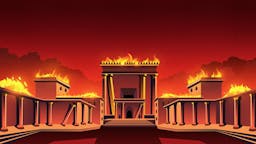
How Am I Supposed To Appreciate The Loss Of The Beit HaMikdash?
Video series • Part 1 of 7 • 9 min
It’s one thing to mourn the suffering of actual people, but how are we supposed to feel genuinely sad over the loss of a building?

What Rachel Imeinu Teaches Us About Mourning
Video series • Part 1 of 5 • 8 min
Mourning on Tisha B’Av may begin with the Temple, but it cannot end there. The familial conflict between Rachel and Leah offers a powerful lesson on how we can take the first steps towards fixing our national tragedy by addressing our personal relationships.

Why Does God Let Us Suffer?
Video series • Part 1 of 6 • 11 min
If God loves us, why does God let bad things happen to us? This question may be impossible to answer, but on Tisha b’Av it’s just as impossible to ignore.
More Tisha B'Av Content
What is Aleph Beta?
Aleph Beta is a unique kind of Torah library. Led by our founder, Rabbi David Fohrman, we are dedicated to high-level, textual Torah learning for adults that is intellectually and spiritually sophisticated, that enlivens your Jewish practice and helps you forge a deeper connection to God. Whether you’ve been learning in yeshiva for years or you’re just beginning your Torah journey, you’re sure to find something meaningful and surprising waiting for you here.
Browse our library of over 1,000 beautifully produced animated videos, podcasts, deep dive courses, and printable guides. Topics include the weekly parsha, Jewish holidays & fast days, laws & mitzvot, prayers, relationships, big philosophical ideas and more. Have something to say at the Shabbos table that will amaze your family and guests and bring deep meaning into their lives.
